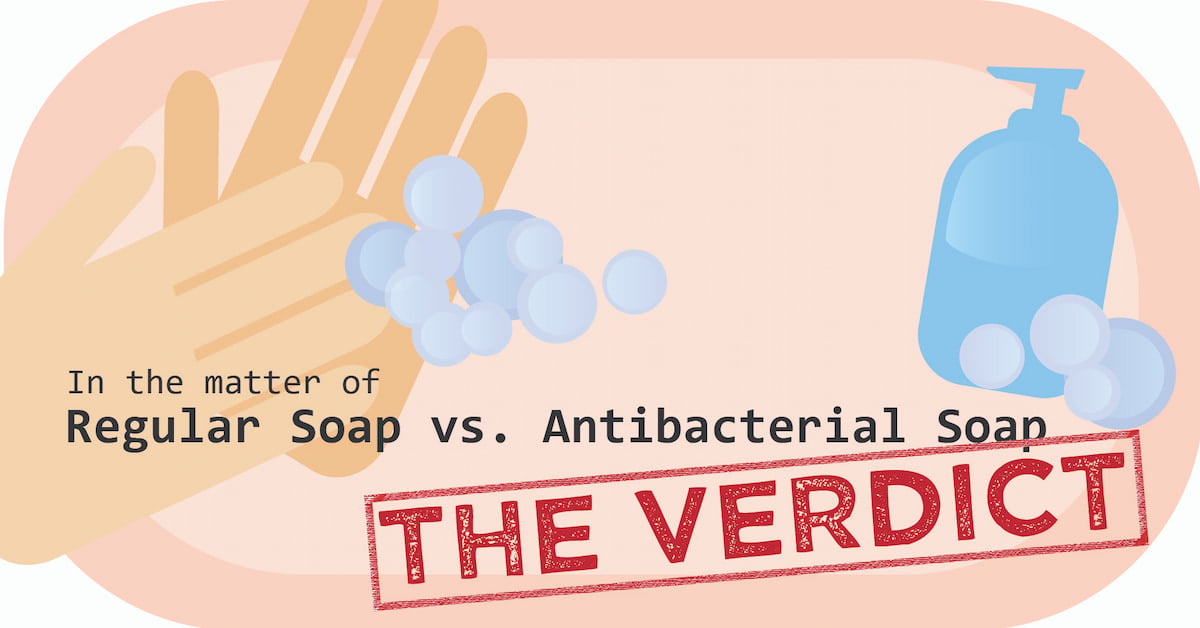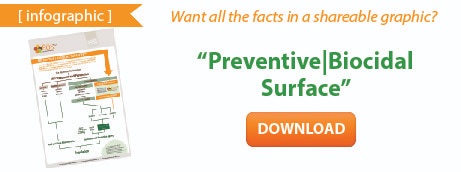 A study demonstrated that regular soap has the same impact as antibacterial soap at killing bacterial during hand washing. Today we'll explore this study, the chemical being evaluated, and what these results mean to the debate about whether or not antibacterial soaps are helpful.
A study demonstrated that regular soap has the same impact as antibacterial soap at killing bacterial during hand washing. Today we'll explore this study, the chemical being evaluated, and what these results mean to the debate about whether or not antibacterial soaps are helpful.
Triclosan: The Chemical
First, let's consider the chemical that makes antibacterial soaps "antibacterial." Triclosan (and triclocarban) is an organic compound that has been used for its antibacterial properties since the 1970s, when it was used as a hospital scrub. It kills bacteria cells by preventing them from absorbing necessary nutrients. Triclosan is used in high concentrations in hospital settings, and at much, much lower concentrations in household products.
U.S. Food and Drug Association: The Regulatory Body
Because it comes into direct contact with the human body, triclosan is regulated by the U.S. Food and Drug Association. In high concentrations, triclosan is very effective at killing bacteria. However, after a series of experiments revealed that consumer use of triclosan may, at best, be the same as regular hand soap, and at worst, damaging, the FDA revisited their determination on this chemical. They issued a final ruling at the end of 2017 that companies will not be able to use triclosan (or 23 other active ingredients) in their products without premarket review due to insufficient data regarding their safety and effectiveness.
The Research that prompted FDA Review: Same as Soap?
In September of 2015, a study by Korean researchers brought the debate about triclosan back to the general public. The study demonstrated that while triclosan in general-use concentrations does kill bacteria, it takes up to 9 hours to do so - way longer than any conceivable hand-washing duration! (In fact, the average hand-washing duration is around 10 seconds. If you doubt that, count the seconds the next time you wash your hands.) When tested against 20 strains of bacteria for 10, 20, and 30 seconds, triclosan was no more effective than regular soap. The results seem to indicate that diluted triclosan, such as that found in consumer products for the home, is not truly "antibacterial." It does not kill bacteria any faster than regular soap.
Looking Forward: Potential Dangers
Not only is research examining whether triclosan provides added benefits, it is also examining whether triclosan can have adverse effects. The FDA indicates that there may be dangers associated with triclosan and food allergies, the creation of drug-resistant organisms ("superbugs"), and "unanticipated hormone effects." Triclosan has been found in drinking water, breast milk, and infant urine, indicating that triclosan enters the environment and passes through the human body. While research is still being conducted in this area, the FDA suggests that those who are concerned with the possible negative effects of triclosan and triclocarban should use plain soap and water and follow the CDC's guidelines about handwashing.
We hope this quick summary has answered some questions about triclosan. To find out what products include triclosan, including soaps, textiles, and plastics, look for a Drug Facts label or the use of the word "antibacterial" in the description. 
Editor's Note: This post was originally published in September 2015 and has been updated for freshness, accuracy and comprehensiveness.

